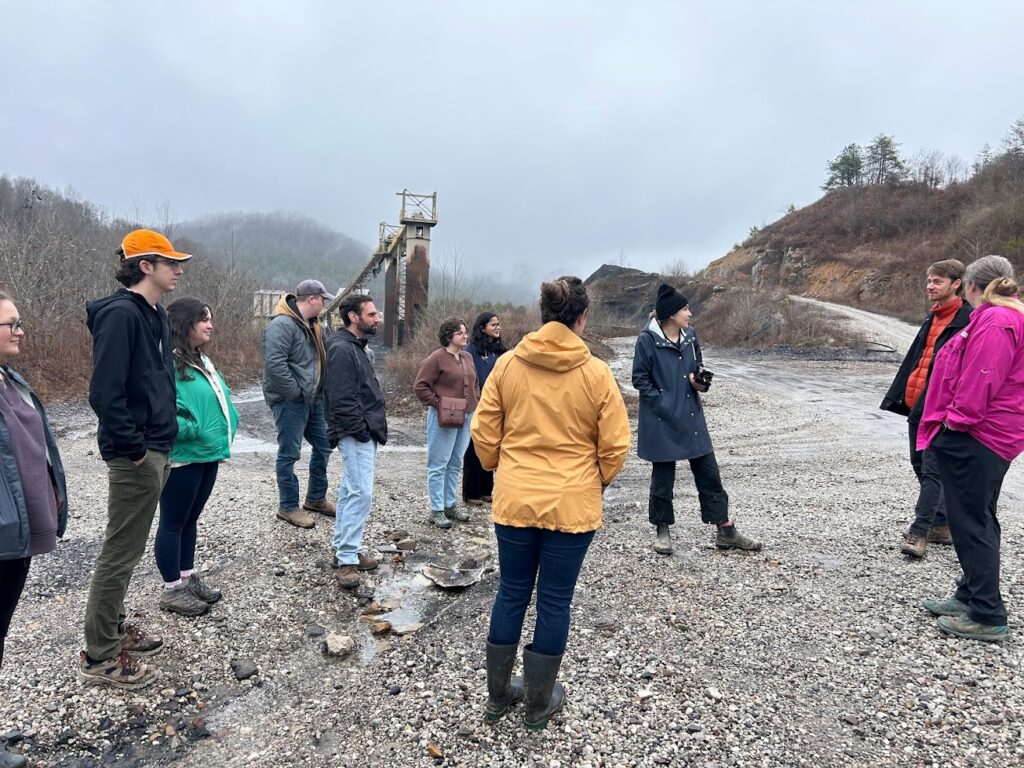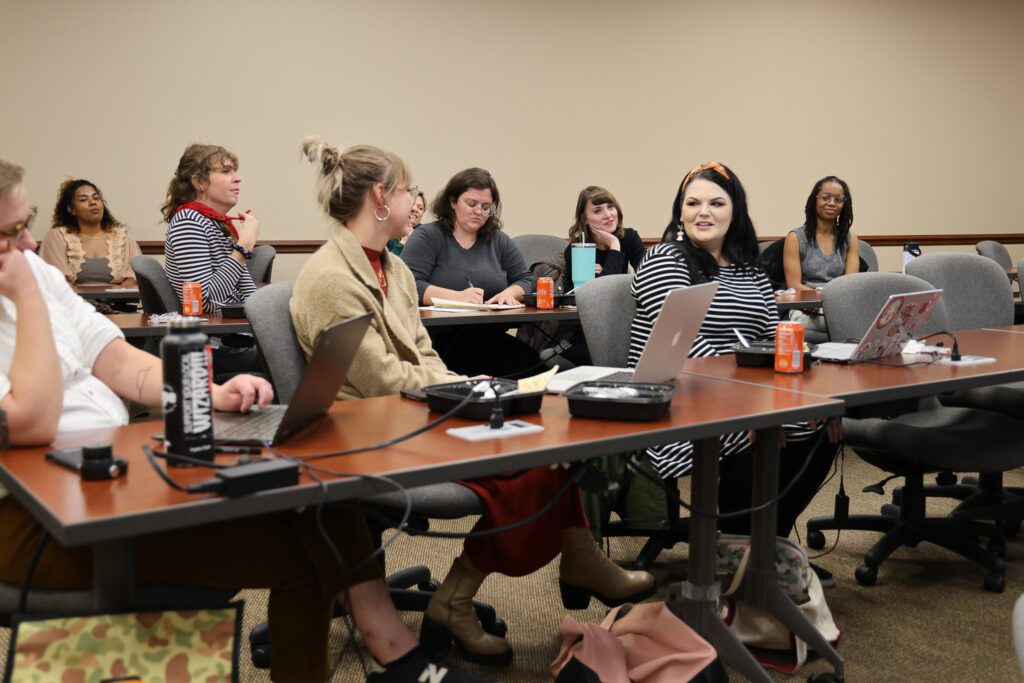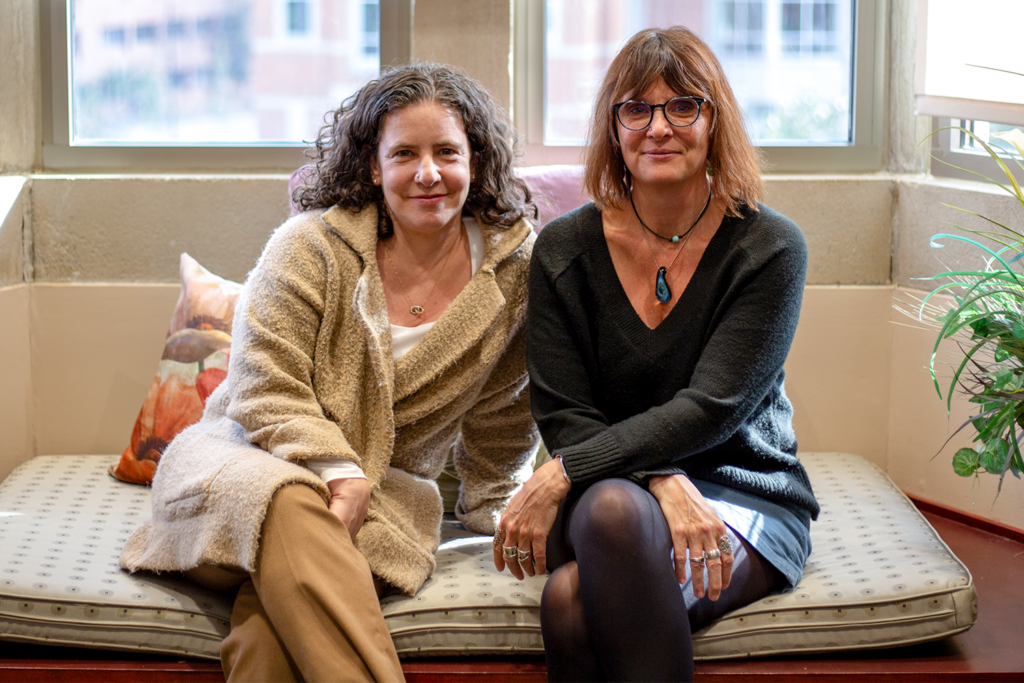A collaborative, path-breaking effort between the University of Tennessee College of Law and the College of Arts & Sciences aims to serve the needs of communities in Appalachia and the Mountain South by addressing community justice issues in the region.
Research topics for the new Appalachian Justice Research Center (AJRC) come directly from the people of the East Tennessee region. This transdisciplinary research center brings together university resources, faculty, students and community members to help solve urgent and historically under-addressed issues in the region.
Faculty experts from multiple disciplines across the university collaborate through the AJRC to advance community visions for more just policies and action, implementing UT’s land grant mission to make life and lives better in Tennessee. Joining the College of Law and the College of Arts and Sciences so far are experts from the College of Social Work; College of Education Health and Human Sciences; and College of Architecture and Design.
The center is co-directed by College of Law Professor Wendy A. Bach and College of Arts & Sciences Department of Sociology Professor Michelle Brown, who spent three years planning the AJRC before its official launch in early 2024.
“This is research ‘for’ and research ‘with,’ not research ‘about,’” said Bach. “In the disciplines that AJRC faculty are from, a lot of the broader discourse is about the east coast and the west coast and big cities. There’s a real lack of centering urban and rural space in Central Appalachia and the mountain south. We seek to get the questions and the answers here.”
Questions that fuel the AJRC arise from Tennesseans who use their own experiences to identify the most pressing issues for justice in communities that have been directly impacted by poverty and violence. These issues include topics such as access to health care, food insecurity, substance misuse and housing justice, an issue brought forth from Statewide Organizing for Community Empowerment (SOCM), an organization dedicated to empowering Tennesseans to have a greater voice in issues that affect them.
“Our involvement with Professor Bach started during the pandemic when our members began attending eviction court—when people were losing their jobs and the eviction rates were skyrocketing,” said Adam Hughes, SOCM’s East Tennessee community organizer. “We were able to work with UT law professors to help set a precedent about how the eviction moratorium would be understood in Knox County courts. Through the law school’s help to design a program, we have worked with the city and county to get a meaningful expansion of legal protection for people facing eviction.”
SOCM now works with the AJRC, as well as UT’s Community University Research Collaboration Initiative, to design and execute an evaluation of this program.
“It’s a really exciting community-university collaboration and it has already helped keep a lot of people in their homes who had the legal right, but not necessarily the ability to enforce it,” said Hughes. “We think it’s only going to get better and more important for the people in Knox County.”
The AJRC offers a campus infrastructure to facilitate these kinds of partnerships with faculty experts and student researchers from across the university. The center’s Appalachian Justice Research Lab, modeled on clinical legal education and supported by a Justice Studies curriculum, gives students course credit and research project experience through four active research areas: community safety, land justice, housing and community stability, and health justice.
“These are solvable problems, but they are hard problems, and they require both the vision of the community and multiple disciplines to solve them,” said Bach. “One of the exciting things is that we’re bringing students together who are going to learn how to collaborate across disciplines in an extraordinary way.”
Students working within AJRC courses and projects get the experience of studying with their own communities—where they come from and where they still live.
“We hope that the infrastructure we’re building internally at the university also builds an infrastructure externally,” said Brown. “We hope that we can bring students in from the region, and they can see a clear route at UT—that they can see a place here that is about them, in all of the diversity of what is Appalachia.”

College of Law Dean Lonnie T. Brown, Jr. praised the efforts of Bach and Brown in creating the AJRC. “Wendy and Michelle have worked tirelessly to build a center that will truly make a difference in the lives of countless Tennesseans, solving longstanding problems that have plagued the Appalachian region,” Brown said. “The AJRC’s innovative work will help strengthen rural communities, epitomizing what a flagship, land-grant institution like UT is all about.”
Vols Connect to Community and Career
The seeds for the AJRC were planted in a course Bach and Brown co-led called the Visions of Justice Practicum, inspired by an urgent need to re-envision community safety in the aftermath of the police killings of George Floyd and, locally to Knoxville, Anthony Thompson, Jr. In this class, students from across disciplines conducted focus groups with young adults and parents impacted by violence and policing to research best practices and to imagine models that would enhance safety for communities and children.
Cole Green, a UT child and family studies major, found the experience pivotal for his connection to Knoxville and Appalachia as a whole.
“It was my first time doing work in the community and it grounded a lot of my research interests in reality,” said Green. “I study the criminal legal system, but from a quantitative vantage point, which is to say that I deal with datasets and not individuals. This project allowed me to be in the room with people who had been impacted by the system I had dedicated so much time to abstractly studying. It changed how I view the role of research and academia’s obligation to serve the community.”
Dave Strickler, a graduate student in history, also found the experience valuable.
“I gained new skills as a focus group facilitator and had the privilege of hearing the powerful voices of our focus group participants who shared their stories with us,” said Strickler. “Learning these methods of insurgent research taught me how to ground my scholarship in accountability to local struggles for justice in the community.”

An interest in estate planning and real estate law led law student Emma Grace Estabrooks to take Bach’s 2023 class Poverty, Race, Gender, and the Law, another course that spoke to the AJRC’s applied research scope. The class gave Estabrooks an understanding of justice issues that arise within her area of study. In 2024, she will contribute her work in conscientious estate planning to the AJRC as part of its Knoxville housing crisis lab.
“I think I’d be doing my neighbors an injustice if I didn’t figure out the ways I could potentially be harming them with the practice that I’m doing. Is the way we do estate planning benefiting everyone or is it only benefiting certain people?” said Estabrooks. “I really never saw myself as a researcher, but once you open the gates with one little question, all these other questions come out, and they’re really fascinating.”
